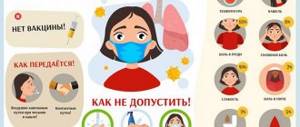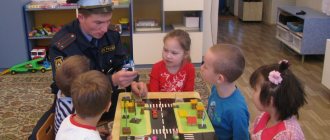Without exception, all parents are interested in the success of their child’s education. Therefore, they begin to prepare him for school in advance: they enroll future first-graders in preparatory courses, teach him reading, writing and quick counting.
Of course, these skills will be useful to the child during his studies, but mothers and fathers forget about the psychological readiness of their children for school. It is this that testifies to the sufficient maturity of the child’s psyche for the transition to a new stage of development - educational activity.
You will learn more about what psychological readiness for schooling is and why it is so important in this article.
What is psychological readiness for school?
Many parents believe that if a child has learned to read, write and solve problems by the age of seven, then he is completely ready for school.
This position is wrong. Because it is not enough for a preschooler to have a certain level of knowledge, skills and abilities in order to master the school curriculum.
By the age of seven, a child should be psychologically ready to study at school. This is the necessary level of development that will allow him to be successful not only in the learning process, but also in communicating with adults and peers, as well as in understanding the student’s internal position.
A child’s readiness to learn implies that all areas of mental development are ready to assimilate the norms and rules of school life.
Why should a preschooler be prepared for school psychologically? This is a case from practice.
At the age of 6 and a half, Pasha could read, write in block letters and knew the names of almost all dinosaurs. But the boy had difficulties with behavior: he was capricious for any reason, refused to comply with the demands of adults and constantly violated discipline. Pasha practically did not communicate with the other guys in the group; it was difficult for him to be the first to speak or invite them to play. The psychologist, examining the children’s readiness for school, informed Pasha’s mother that the child was not psychologically ready for education and recommended leaving the boy in kindergarten for another year. Mom was outraged: why did her son have a low level of readiness, because he knows and can do so many things! Without listening to the specialist’s advice, my mother sent Pasha to first grade. Almost immediately the boy began to have serious problems. The lessons were uninteresting to him, he did not listen to the teacher, looked out the window or drew on his desk. Pasha did his homework only with his mother’s help and under her strict control. A month later, the director invited my mother and recommended that Pasha be transferred to a special school because he could not cope with the curriculum.
⠀
This case illustrates how important competent psychological and pedagogical preparation for school is for later life, in which attention is paid to all aspects of the child’s mental development. Due to the mother’s wrong actions, the child ended up in a correctional school, the education in which did not correspond to his real capabilities.
Summarize. A child who is psychologically ready for school quickly adapts to the learning process and school life. It is easier for him to establish relationships with teachers and classmates, make friends and show his best qualities.
To worry less about your young schoolchild and check how the complex (and often problematic) process of adaptation to new conditions is going, use the “Where are my children” parental control application. With it you can listen to the sound around you, contact your child in any situation and watch his movements on the map.
Readiness Components
Now let's look at what a child still needs to be successful in school:
Motivational readiness
Only the work that you do with desire and interest will be successful. Therefore, by the end of preschool age, the child should have:
- desire to learn, desire to gain new knowledge;
- interest in understanding the world;
- positive attitude towards school, teacher, classmates.
Psychologists say that when children enter school, social and achievement motives prevail. They like nice uniforms, school supplies, new friends, getting good grades and being praised by the teacher.
Academic motivation appears much later, by the second or even third grade. First, the child must get used to the role of a student, and then come to an understanding of what this role can give him.
Intelligent Readiness
The more a child knows and can do, the easier it will be for him to prove himself at the beginning of school. Important readiness indicators will be:
- the ability to establish cause-and-effect relationships between events and phenomena;
- ability to analyze, generalize, draw conclusions;
- a certain amount of knowledge about the world around us within the limits of age.
Social and personal readiness
School learning involves communicating with a large number of people: teachers, classmates, children from other classes. Therefore, the child must have the following qualities well developed:
- the ability to communicate with adults and peers, both acquaintances and strangers;
- ability to comply with adult requirements;
- responsiveness, ability to sympathize, empathize;
- developed moral principles;
- adequate self-esteem.
Emotional-volitional readiness
The demands of school life are not easy for yesterday's preschooler. You need to get up early, come to school before the bell rings, and sit in class for a long time. You won't be able to relax at home either, because you have to do homework. Therefore, the child needs to be collected, responsible and organized. He will be required to:
- ability to focus on a task, concentrate attention;
- the ability to finish what you start;
- arbitrariness of behavior - the ability to manage one’s actions and emotions, restrain negative manifestations;
- the ability to overcome difficulties in achieving a goal;
- the ability to act according to the rules.
The Pasha from our story did not have formed emotional-volitional and social-personal readiness. He could not control his behavior, obey the demands of adults and interact with peers. If mom had paid due attention not only to the development of cognitive skills, perhaps everything would have turned out completely differently.
Diagnostic methods
To determine a child’s level of readiness for school, psychologists use various methods, such as the Kern-Jirasek test, “Graphic dictation,” “Conversation about school” and many others.
But parents themselves can determine how ready their child is for school.
Firstly, you can ask your son or daughter a number of questions about the world around them: “What birds do you know?”, “Tell me about the signs of spring in nature?”, “Why does water turn into ice?”
Secondly, there are quite simple methods with which mothers and fathers can find out the level of development of memory, attention and thinking in their child.
"10 words"
One of them is the “10 words” technique . Its essence is that the mother reads out 10 words that are not related to each other in meaning. The child’s task is to name all the words that he was able to remember after each repetition. The words are read 4 times. Normally, a child should remember 8-10 words after the fourth repetition. A low level of development of auditory memory is indicated by an indicator of 3 or fewer memorized words.
"Repeat the pattern"
Another technique that is quite simple for parents is “Repeat the pattern” . Mom or dad draws a simple pattern in the cells and asks the child to repeat the same one. Here you can evaluate several indicators at once: whether the child can draw lines exactly along the cells or draws crookedly, whether he gets the same pattern or whether there are differences, whether he does the task diligently or carelessly. If the pattern is drawn correctly and in straight lines, the distance between the cells is maintained - this indicates a high level of development of graphic skills and visual-spatial coordination. Otherwise, it's worth paying attention to these skills.
"The Fourth Wheel"
You can determine the level of logical thinking of a child using the “Fourth Odd One” . The child is shown 4 pictures, one of which is redundant. For example, cat-dog-cow-fox. The parent asks the child to name the extra picture and explain his choice. Out of 10 attempts, at least 7 must be scored. The result – 6 pictures or less – indicates the child’s underdevelopment of the operations of analysis and generalization. This may also indicate a low outlook.
It is useful for parents to observe their child: how he communicates with people around him, whether he has friends, whether he knows how to focus on one thing, whether he has the desire to learn something new. An important indicator is how the child copes with difficulties: gives in to them, asks for help from parents, or solves the problem himself.
Signs that a child is not ready for school
These manifestations can be noticed both before the child enters first grade and during school. A child is not ready for school if he:
- absent-minded, “with his head in the clouds”, incapable of long-term concentration;
- restless, often distracted, constantly violating discipline;
- gets tired quickly, irritable;
- cannot make friends with peers, is withdrawn or, on the contrary, constantly conflicts with them;
- does not want to go to school, complains about the “bad teacher” and “boring lessons”;
- has difficulties in mastering educational material;
- often gets sick and complains of feeling unwell;
- anxious, afraid to be the first to talk to adults.
It is important for parents to remember that by sending a psychologically unprepared child to school, they cause irreparable harm to the child’s psyche.
Components
Experts distinguish 4 types of psychological readiness for school.
Personal-social
Willingness to communicate and interact. First of all, with adults:
- understand the authority of the teacher, respect him, obey him unquestioningly;
- Do not be scared;
- accept him as a person;
- feel and maintain distance;
- do what he says.
How to create this readiness: expand your circle of communication with unfamiliar adults, instill basic skills of respect for those who are older. Invite friends home, include him in contact with a doctor at the clinic, with a salesperson in a store, with other parents on the playground.
Secondly, readiness to communicate and interact with peers:
- be able to work in a group;
- be friendly, non-conflicting;
- know about mutual assistance;
- have a concept of friendship.
How to create this readiness: do not deprive them of kindergarten, promote interaction with other children during walks, invite little friends to visit home, teach role-playing games, take them to public events.
A child who attended kindergarten has a much higher personal and social psychological readiness for schooling than one who stayed at home.
Emotionally-volitional
Readiness to complete educational tasks. Difficulties may also be experienced by those who actively studied with private teachers before school and went to development centers; and those who were not loaded with additional classes. The first will be deeply disappointed, as they will not be interested in the lessons. For the latter, the learning process will be difficult: the assignments are not understood, and sitting through 40 minutes of a lesson is downright hard labor.
How to organize your preparation:
- teach you to adhere to a daily routine;
- instill the skill of perseverance;
- do not overload with excessive activities;
- send to the “School of the Future First-Grade”;
- Do not forget that the leading form of activity in preschool age is play.
By the time the child enters school, he should get used to the change in activity. 10 minutes of quiet work at the table (drawing, modeling, reading) - half an hour of outdoor games. This rotation will prepare them for changing lessons and breaks.
Intelligent
Readiness for intellectual work. Many parents misunderstand this point. It does not at all mean the ability to read and write, speak English and know an excerpt from “Eugene Onegin” by heart. We are talking about the ability to think logically - by this time the basis of an analytical mindset should be formed.
What kind of preparation can be:
- teach how to solve simple logical children's puzzles;
- solve riddles, charades, children's crosswords together;
- ask the question “why?” more often;
- play educational board games together;
- buy Legos, construction sets, puzzles;
- do not stop developing fine motor skills of the hands (sculpting, drawing details, making crafts, going to sand therapy classes).
IQ tests for six-year-olds reveal their intellectual and psychological preparation for school.
Motivational
One of the most important psychological moments of preparation for training. Assumes the formation of a positive attitude towards:
- school process;
- to the teacher;
- other children;
- lessons and homework;
- to myself.
How to organize training: say only good things about teachers, get them interested in the learning process, work on adequate self-esteem. If there are childhood psychological traumas and internal complexes, it is advisable to see a psychologist.
If at the time of admission to 1st grade the child has all 4 psychological readiness, there will be no problems with adaptation.






